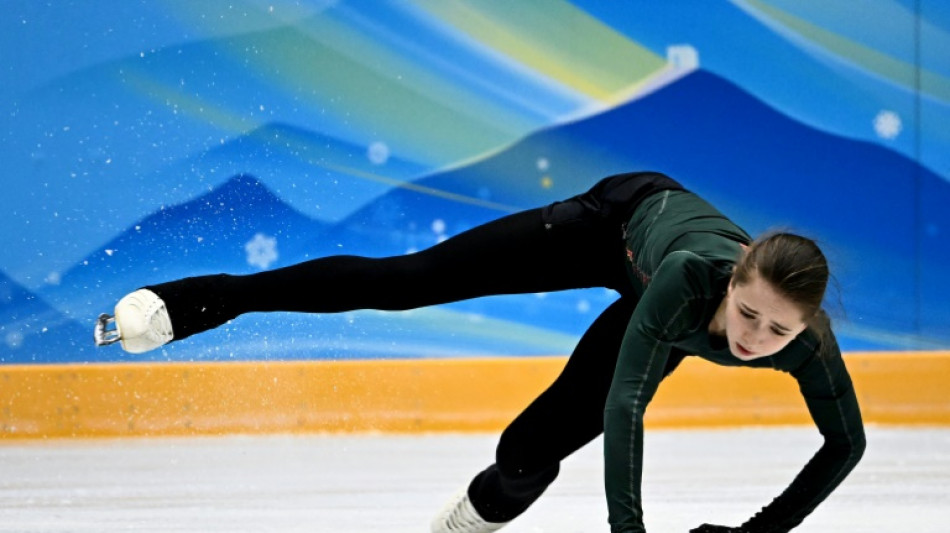

Questions swirl as Russian skater awaits Beijing Olympics doping fate
Questions grew Saturday over why it took six weeks for Kamila Valieva's failed drug test to come to light, as the 15-year-old Russian figure skater fights to stay at the Beijing Olympics.
The build-up to the Games was overshadowed by concerns about Covid and human rights in China, and the doping scandal surrounding the prodigious teenager threatens to tarnish the Olympics anew.
Valieva's Beijing Olympic fate is now in the hands of the Court of Arbitration for Sport (CAS), which is expected to make a ruling before she is scheduled to compete in the women's figure skating singles competition starting on Tuesday.
Valieva, who played a starring role in helping Russia win team gold in Beijing on Monday, tested positive for the banned substance trimetazidine after competing at an event in Saint Petersburg on December 25.
However, the International Testing Agency said in a statement on Friday that the World Anti-Doping Agency-accredited laboratory in Stockholm only reported that Valieva had returned a positive case on February 8 -- the day after she won team gold in Beijing.
In an interview with AFP, United States Anti-Doping Agency chief Travis Tygart questioned the delay.
"The failure to report a test taken in December until after the team event in the Games is a catastrophic failure of the system to protect the public, the integrity of the Games and clean athletes who had to compete," Tygart said.
"It shouldn't have happened."
Tygart said US authorities and other nations routinely expedite test results for athletes due to be participating in major championships, precisely to avoid situations like the Valieva case.
Russia's anti-doping agency RUSADA said it had been informed that a sharp rise of Covid-19 infections at the start of the year was to blame for the delay.
International Olympic Committee spokesman Mark Adams said he had also heard that the pandemic may have been the reason, but could not give confirmation because the testing in this case was the responsibility of WADA.
"I had understood -- but I would like to get this confirmed -- that there was some issues around Covid, but I don't know about the exact delivery of the testing and the delivery of the sample," he said on Saturday, as the doping scandal simmered.
The head of the Russian Olympic Committee, Stanislav Pozdnyakov, had questioned the timing of Valieva's positive test on Friday, as the teenager's country rushed to defend her.
"The timings of sample processing raise serious questions," Pozdnyakov told the RIA Novosti news agency, suggesting the result had been deliberately released to coincide with the Olympics.
"It seems like someone held the sample until the end of the team skating tournament," he added.
- No Russian flag -
It is just the latest doping scandal surrounding Russian athletes in recent years at Olympic Games, which led to Russia as a country being banned.
Russian competitors are allowed to take part in Beijing as the Russian Olympic Committee (ROC) if they have been able to prove they were not tainted by the massive state-sponsored doping programme that targeted a range of summer and winter Olympics sports over a four-year period.
The scheme included manipulating doping tests at its home 2014 Sochi Winter Olympics when Russia topped the medals table.
In Beijing, the ROC team cannot have the Russian flag on its clothing and the Russian anthem is not used.
Separately, six golds were up for grabs on the eighth day of competition at the Games, in biathlon, cross-country skiing, skeleton, ski jumping, snow boarding and speed skating.
Snow fell on the outer mountainous areas of Beijing on Saturday, with more forecast over the weekend.
The Games are relying on mostly man-made snow because the capital is one of the driest places in China.
L.Boyle--NG



